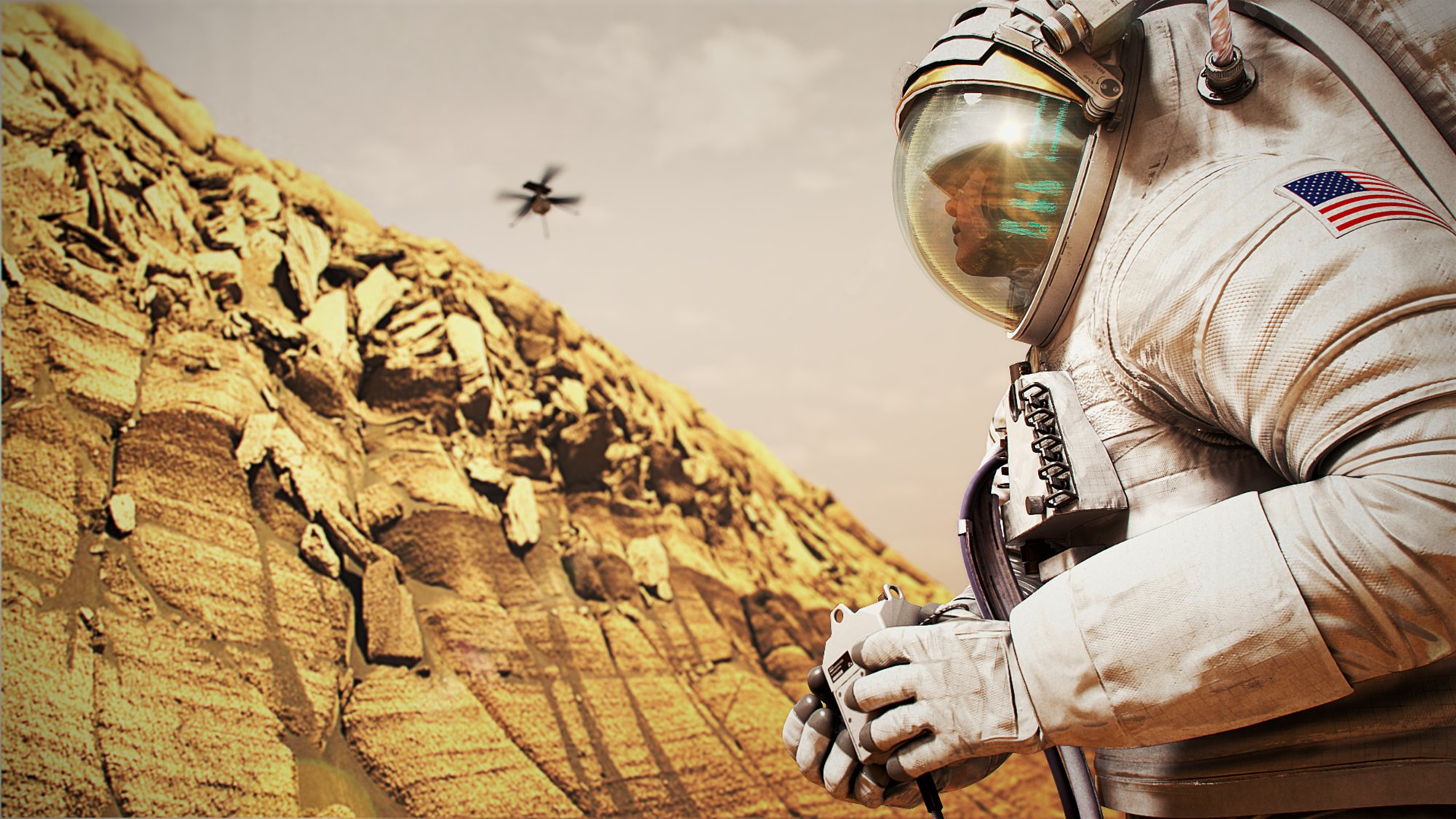

We already know that outer space isn’t a friendly place for humans to exist. There’s no breathable air or drinkable water unless you bring it with you, and it’s either freezing cold or burning hot depending on where you are. But the effects on our bodies run so much deeper than those obvious life-threatening issues.
From decades of space exploration, we’ve seen that astronauts’ bones weaken and their muscles deteriorate from the lack of gravity, their risks of cancer increase from space radiation, and their immune systems are compromised by the stress of spaceflight. And these problems only get worse the longer you’re out there, which is a serious problem for planning trips to far away destinations like Mars.
Research from nephrologists at University College London (UCL), recently published in Nature, identifies another challenge we’ll have to face as we venture beyond Earth. This new work shows that long term spaceflight might permanently damage a human’s kidneys, so much so that an astronaut going to Mars might even need dialysis on the way back.
“As far as we could tell, no one had been looking at the impacts of spaceflight on kidney health since the end of the space race,” explained Keith Siew, lead author and renal medicine researcher at UCL, on behalf of himself and co-author Ben Walsh, a nephrologist at the same institution.
“Perhaps more striking to us was that we could find very little about the impacts of space radiation on the kidney,” he added. In hospitals here on Earth, doctors know from first-hand experience that our kidneys are quite sensitive to radiation—in fact, they’re often one of the major limiting factors for how much radiation therapy can be done on a cancer patient.
The kidney also “plays a central role in kidney stone formation and bone loss, both of which are major problems observed in astronauts,” explains Norio Suzuki, a medical scientist at Japan’s Tohoku University not affiliated with the new research. Our kidneys are responsible for cleaning out our blood and regulating the amount of fluid in our bodies; if they aren’t working well enough or if there is just too much gunk to deal with, you can end up with kidney stones or other ailments. Understanding space’s effects on the kidneys is crucial “to develop preventive medicine for future space travelers, not limited to healthy celebrities,” adds Suzuki.
To figure out what’s going on in the kidneys of creatures that have been to space, Siew and collaborators looked at biological samples from humans, mice, and rats that had been to the International Space Station for various experiments, plus some in Earth-bound experiments exposed to doses of radiation similar to that encountered on the ISS. Using these organisms’ urine, feces, blood, and even pieces of their kidneys (not from the humans, of course), the researchers found a few major changes happening across the board.
First off, they noticed that two proteins in the kidneys—which affect how well our bodies can process calcium—are essentially being switched off somehow in spaceflight. Secondly, they noticed some major changes in a part of the kidney called the distal convoluted tubule (DCT), a specific part of the nephrons that actually do the filtering the kidney’s known for. The DCT specifically is “responsible for fine tuning the body’s calcium and magnesium handling, but perhaps best known for regulating sodium and blood pressure,” says Siew.
Medical research on Earth has recently shown that DCTs “are in fact incredibly plastic” and “could alter its structure in a matter of weeks,” he adds. In space, the DCT appeared to be getting shorter—a phenomenon that we also observe in unhealthy organisms on Earth. It seems that not only are astronauts losing extra calcium from their bones weakening, they are also having a harder time than usual getting rid of that excess calcium in their kidneys, perhaps leading to kidney stones.
It’s yet unclear why these particular changes are happening, but the authors postulate that changes in blood pressure from the lack of gravity might be putting extra strain on the kidneys. Radiation is also almost certainly a major issue, as mice exposed to space-like doses showed similar kidney damage to humans undergoing radiation therapy, such as tiny blood clots in the kidney’s capillaries. No matter what the cause, the challenging environment of outer space is clearly remodeling our kidneys for the worse.
“The remarkable thing is that if someone was experiencing kidney remodeling, it’s unlikely they would feel any different until one day they have a kidney stone scraping down their ureter or worse, blocking it,” says Siew about the astronaut experience. “It remains to be seen if the kidney remodeling is reversible and on what time scale.”
Although more research is needed to fully understand the ways our kidneys change in space, they already have a few ideas for how to combat cosmic kidney disease. One clear area for improvement is protection from radiation—but the seemingly-obvious idea of adding additional shielding to the space station might actually do more harm than good when faced with the ultra-fast particles in cosmic radiation. “I like to imagine it like a bullet coming through a large pane of glass, and while the bullet grazes your shoulder and does real damage, it’s all the broken glass raining down on you that’s really going to cut you up and potentially be more life threatening,” says Siew.
An alternative is to try to create a portable version of Earth’s magnetic field, which is what protects us on our home planet, in an idea known as active shielding. Medical researchers are also looking into drugs that might help counteract the extra stress the kidneys face in space, whether by fighting oxidation or helping out mitochondria inside cells. It looks like eventual human missions to Mars will have yet another life-saving thing to pack for their journeys.
